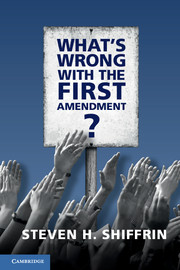2 - Justice
from PART I
Published online by Cambridge University Press: 05 September 2016
Summary
One of the hallmarks of a civilized political system is respect for the right of a fair trial. In the United States, the right to a trial by jury in criminal cases is regarded as “fundamental to the American scheme of justice.” If defendants are to receive a fair trial, assessments of their guilt or innocence should be decided in the confines of a controlled courtroom by an impartial jury, uncontaminated by the frenzy of a sensationalistic press barrage. The fair trial requirement is important not only for individual defendants, but also it is in the public interest in a democratic society that defendants are acquitted or convicted through trials that both are fair and appear to be fair.
Although our system of criminal justice has many significant deficiencies, the overwhelming majority of criminal defendants who go to trial are tried by a jury that has not been contaminated by pretrial publicity. Their stories are not sufficiently newsworthy to garner press attention. But some defendants are not so lucky. In their circumstances, the press is eager to publish all the evidence they can find without regard to the effects on prospective jurors. I wish I could say that our system places limits on the press in an effort to safeguard our system of criminal justice and the individuals involved. But our system does no such thing. Our system caters to the press desire for profits and the insatiable appetite of the public for gossip – at the expense of justice. This, of course, is the effect of our system and not its motive. The protection of the press is thought to be justified on a much higher plane, and there is no admission of a compromise with justice. But I find the claim that justice is not compromised to be a reckless gamble, and, as I indicated in Chapter 1, the claim that the press serves a valuable democratic function in these circumstances is feeble. Indeed, there is a strong argument that the values underlying the freedom of the press are disserved by permitting the publication of materials that threaten the fairness of individual trials. Such publications do not respect the dignity of the accused individuals, circumvent the very basis for rules of evidence at trials, and mock the rule of law, which is central to any theory of democracy.
- Type
- Chapter
- Information
- What's Wrong with the First Amendment , pp. 25 - 34Publisher: Cambridge University PressPrint publication year: 2016

